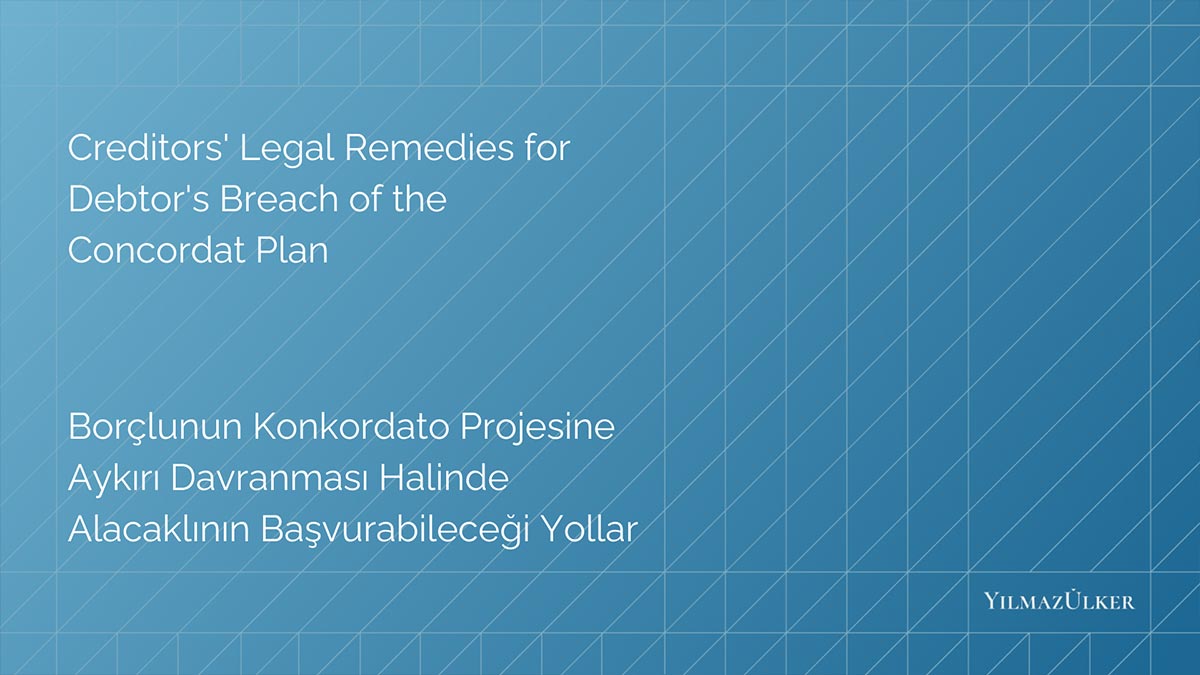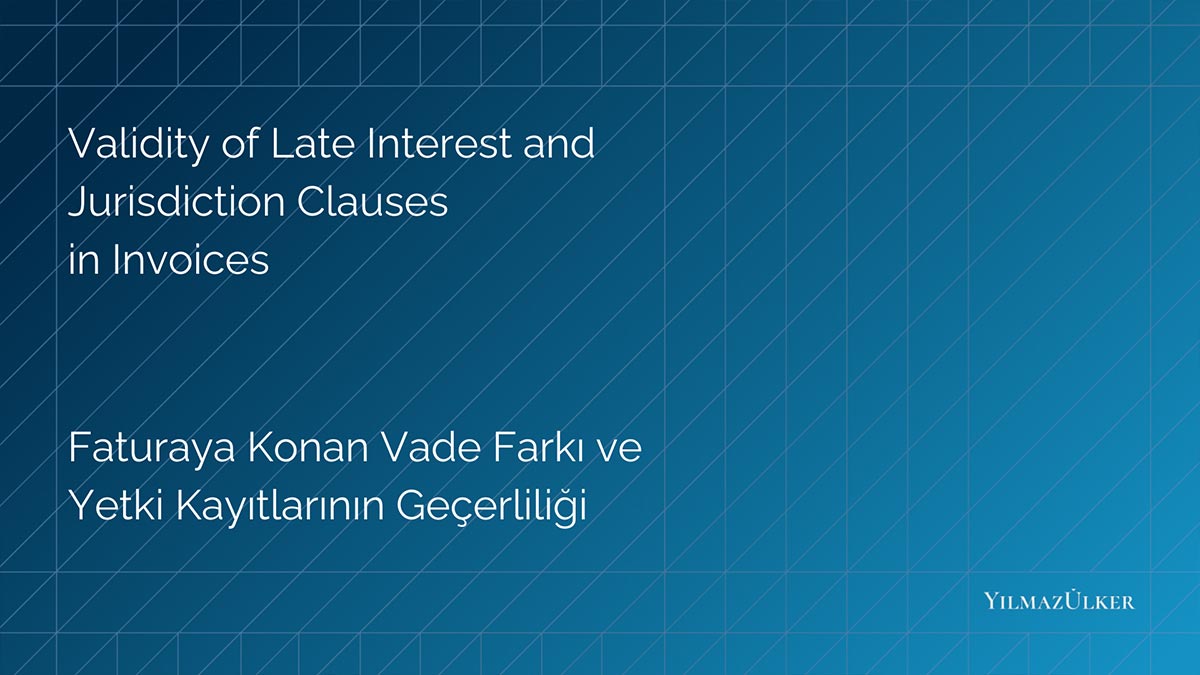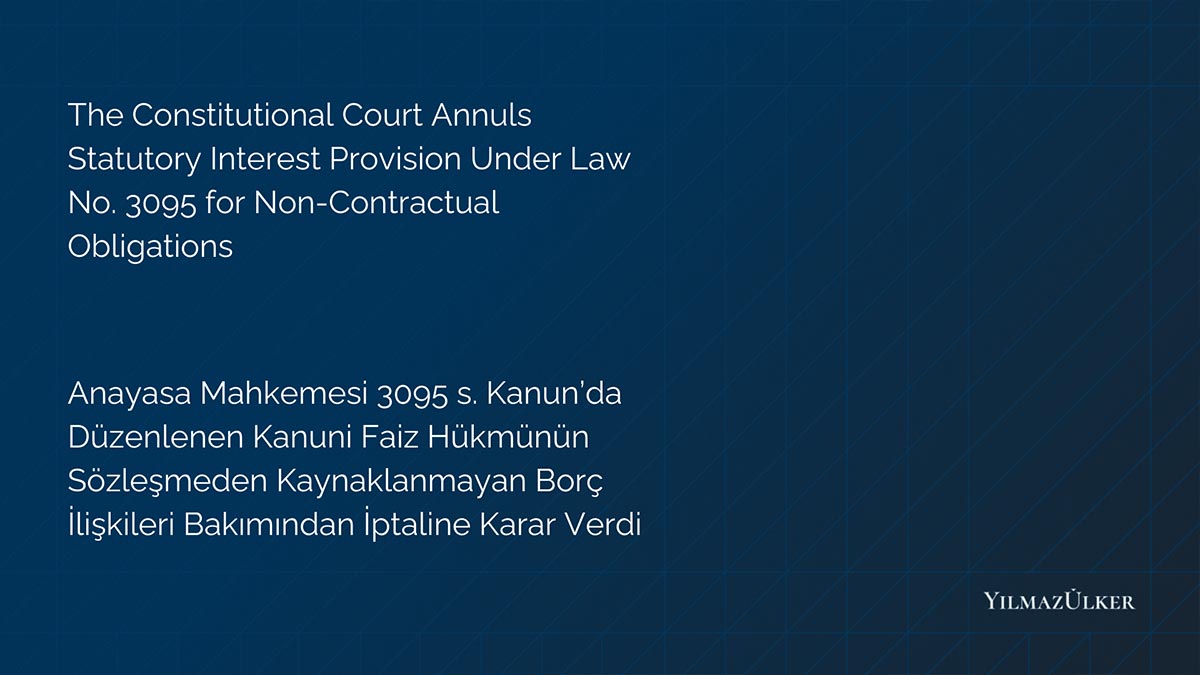Actualités & Publications

Creditors' Legal Remedies for Debtor's Breach of the Concordat Plan
An Overview of the Concordat under Turkish law
Concordat is a court-supervised restructuring process that aims to allow a debtor on the verge of bankruptcy to sustain its economic operations without prejudicing creditors, provided the conditions set forth in Articles 285-309 of the Enforcement and Bankruptcy Code No. 2004 (“EBC”) are met. There are three types of concordat: “Ordinary”, “Post-Bankruptcy”, and “By Surrendering Assets”. The concordat, which has periodically gained prominence in Turkish law [1], underwent significant changes with Decree Law No. 669 in 2016 and Law No. 7101 in 2018, becoming a frequently used method in practice as an alternative to the repealed postponement of bankruptcy.
Concordat Plan and Court Approval
In practice, the most commonly encountered ordinary concordat enables the debtor to present a payment plan that encourages creditors to waive a portion of their claims and proposes extensions of due dates and installment payments for outstanding debts. The ultimate goal of a debtor seeking to avoid bankruptcy is, from the outset, to have their concordat plan accepted by the creditors and subsequently approved by the relevant court. To address the confirmation of the concordat plan, it is imperative to complete the temporary and final deadline processes following the application, obtain a sufficient majority at the creditors' meeting, and secure court approval for the plan.
Debtor's Breach of the Approved Concordat Plan
With the court's confirmation of the concordat, its provisions become binding on all creditors, including those who voted against the concordat plan [2]. However, despite the presence of numerous oversight and supervision provisions under EBC, there remains the possibility that the debtor may violate the rights of creditors by failing to make payments in accordance with the debt amount and terms specified in the plan.
Creditors' Legal Remedies for Breach of the Concordat Plan
In instances where the debtor breaches the concordat plan, any creditor who has not received the agreed-upon performance may seek the following remedies, provided the necessary conditions are met:
Partial Termination of the Concordat Plan under Article 308/e of EBC [3]
Complete Termination of the Concordat Plan under Article 308/f of EBC
Debt Collection Proceeding Based on a Court Judgment for the Outstanding Amount
If the concordat plan is partially terminated, its binding effect ends only for the creditor requesting the termination. In the case of complete termination of the plan, its binding effect ceases for all creditors. Since the termination will retroactively nullify the provisions of the concordat, creditors may initiate enforcement proceedings for the entirety of their claims. In essence, a creditor whose rights are violated under the concordat plan has the right to determine the most appropriate course of action based on the specific circumstances.
Bibliography
- [1] See Also: The effects of Law No. 4949 and Law No. 6728 on the concordat under EBC.
- [2] Pekcanıtez, Hakan / Erdönmez Güray. 7101 Sayılı Kanun Çerçevesinde Konkordato. İstanbul, 2018. S. 154.
- [3] In some of its decisions, the Turkish Supreme Court has used the term “annulment” instead of “termination”. See Also: Decision of Turkish Supreme Court 19th Civil Chamber Dated 03.05.2001 and Numbered 2001/2228 E. 2001/3400 K.; Decision of Turkish Supreme Court 19th Civil Chamber Dated 14.01.2003 and Numbered 2002/9156 E. 2003/170 K.; Decision of Turkish Supreme Court 19th Civil Chamber Dated 24.11.2005 and Numbered 2005/6402 E. 2005/11555 K.
The above information reflects the general assessments of YılmazÜlker Attorney Partnership ("YılmazÜlker") regarding the subject matter and do not constitute legal opinion or legal consultancy services. Before taking any action based on the matters stated herein, it is recommended to seek professional legal advice by considering the specific circumstances of the case. YılmazÜlker shall not be held liable for any consequences arising from or in connection with the content of this document.






#YilmazUlker #Concordat #ConcordatPlan #EBC #Publication